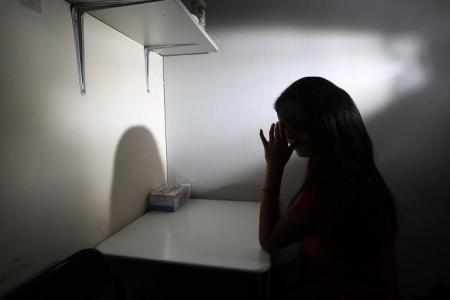When paying maintenance to abusive parents is out of fear
Betty (not her real name) left home at 17 after suffering physical and emotional abuse at the hands of her mother.
Although she wanted to cut ties, Betty, now in her 30s, caved in and agreed to pay monthly maintenance after receiving a death threat from her mother at her workplace.
She said she does not want to be involved with her mother and feels that she is at the brink of a mental breakdown.
“This matter has not only rekindled my ugly past of abuse and increased my stress levels further, but it has also affected my husband and children’s lives.”
The Ministry of Social and Family Development (MSF) said Betty’s case illustrates the distress that children can experience when they are subject to a maintenance claim by their parents who previously abused, neglected or abandoned them.
The Maintenance of Parents Act allows seniors who are unable to provide for themselves to claim maintenance from their children. On Sunday, a workgroup that is reviewing the Act announced four proposed changes.
One amendment calls for parents who have a record of abusing, neglecting or abandoning their children to first ask the Tribunal for the Maintenance of Parents for permission and prove why the claim for maintenance should be considered.
Currently, the child has to provide proof of abuse when a claim is made.
With this proposed change, those like Betty can be better protected against reliving that trauma, said MSF.
The ministry said: “Such distress can cause them to give in to the parents’ demands, even though the case may have been dismissed if it went before the tribunal at a hearing. If there was an official record for this case, the amendment would have been helpful in preventing this distress to Betty.”
Another proposed change is to give power to the Commissioner for the Maintenance of Parents to contact children of destitute seniors for a mandatory conciliation session.
If passed, the new rule will apply only to seniors living in welfare homes for the destitute, such as Pelangi Village or Jamiyah Home for the Aged, or are waiting to be admitted into such a home. However, they must have been responsible parents in the past and their children must be able to afford to give financial support.
Mr Adrian Ng, a case worker at the Bukit Batok Home for the Aged, said the amendment would cut down the time and effort to locate children of elderly residents and have conversations with them.
He added: “It would enable us to better assess if any form of reconciliation is possible, and determine if the children are able to financially support their parents and work towards reintegrating the resident back into the community.”
Mr Ng said some concerns seniors in the home have against reaching out to their children stem from not wishing to cause any other strain to their relationship with the child.
The workgroup also proposes to allow the tribunal to introduce non-monetary orders, like requiring a parent with a gambling problem or other addictions to attend counselling, before receiving financial support from their children.
Mr Jenson Lee, a mediator at the tribunal, said this will provide some reassurance to children who are willing to financially support their parents, but concerned the money would fund bad habits like gambling.
He added that the orders would inevitably face some resistance from parents who may feel that their children should maintain them regardless of the situation.
Still, it is a positive step towards reducing family strains.
Mr Lee said: “With experienced counsellors on board, there is a high chance that the parent can understand the harms and family strains that gambling causes. In the process, if the parent is able to address his or her gambling addiction, there would likely be a decrease in monetary-related arguments in the family, and this would inevitably ease family strains.”
Get The New Paper on your phone with the free TNP app. Download from the Apple App Store or Google Play Store now



